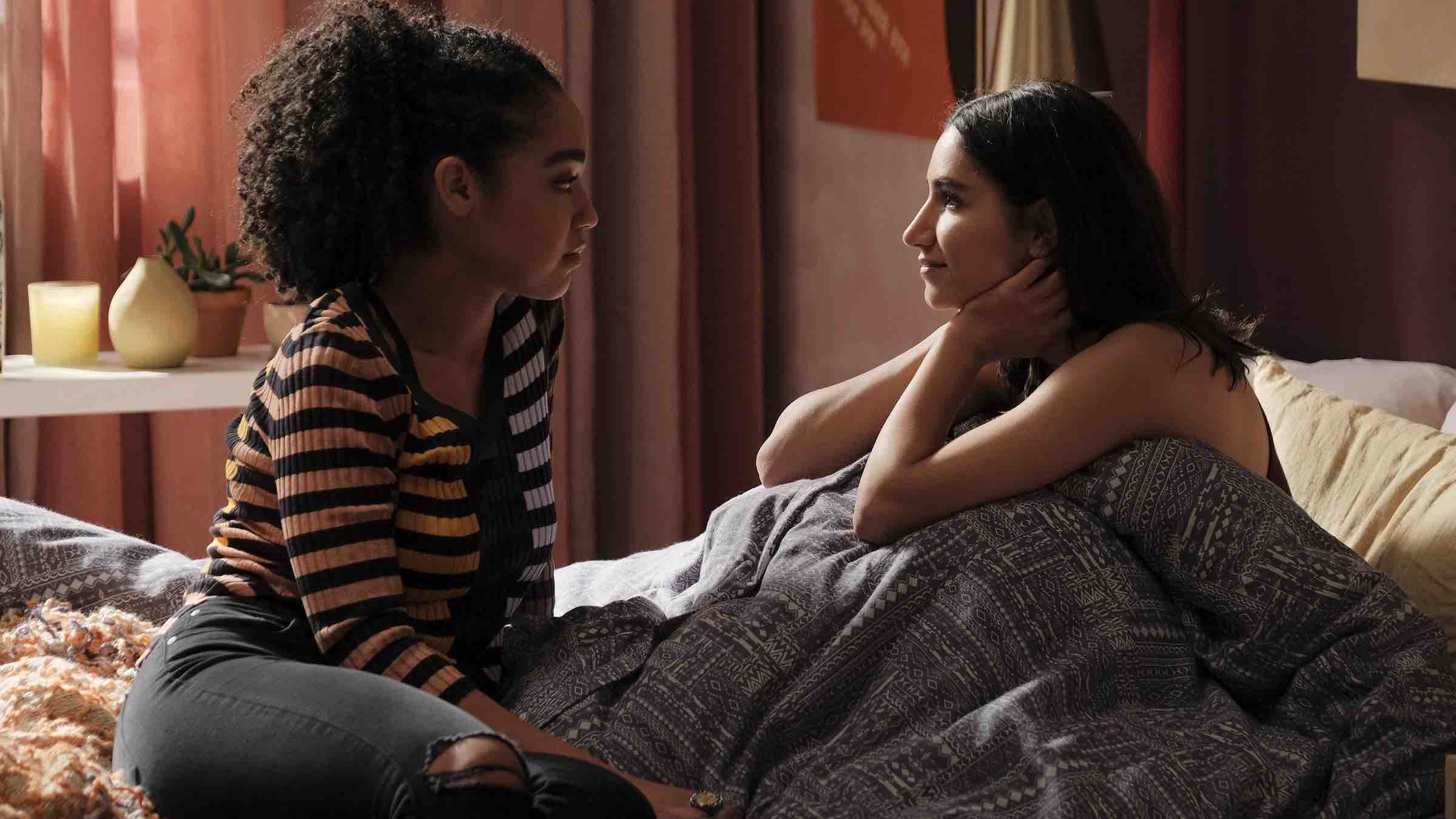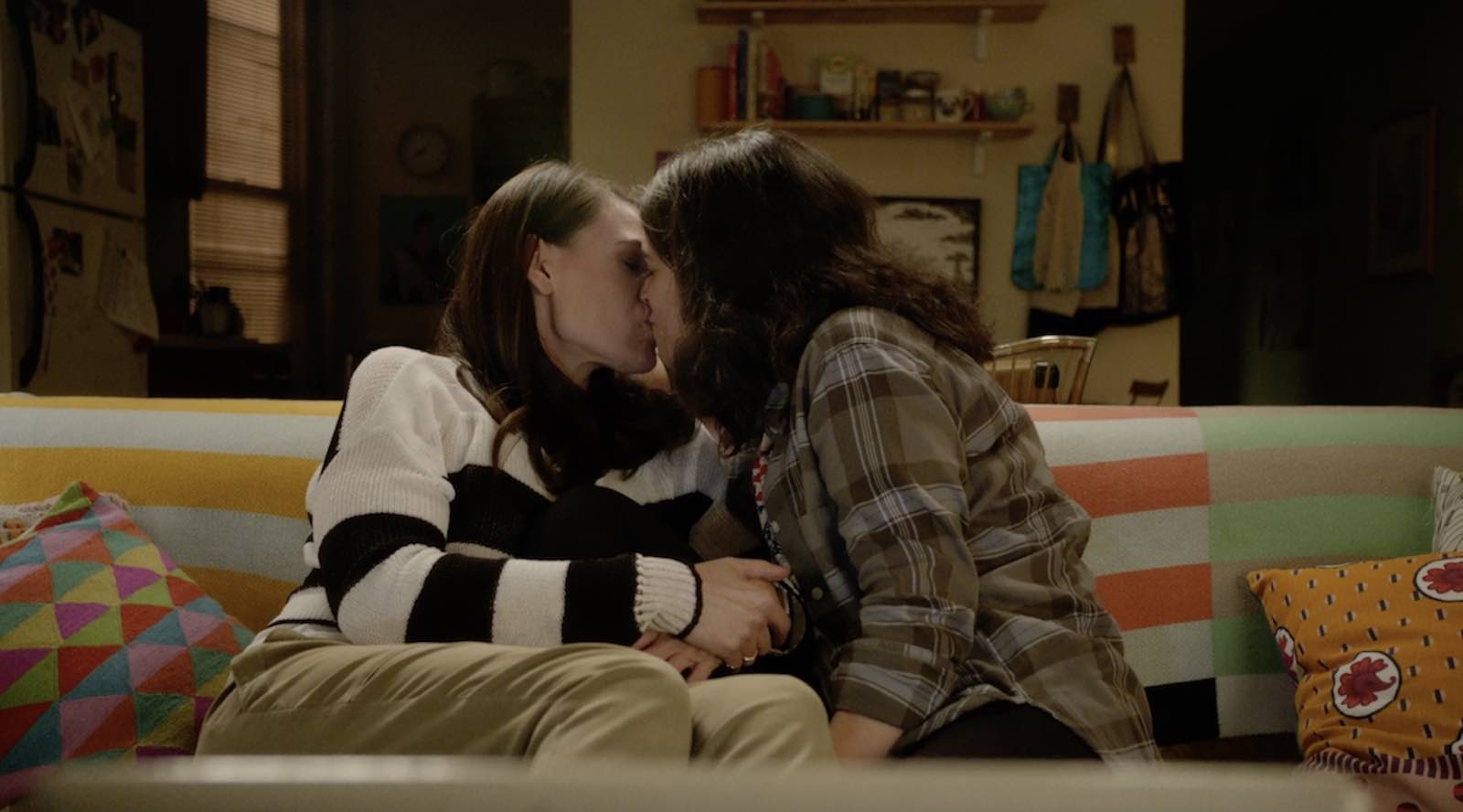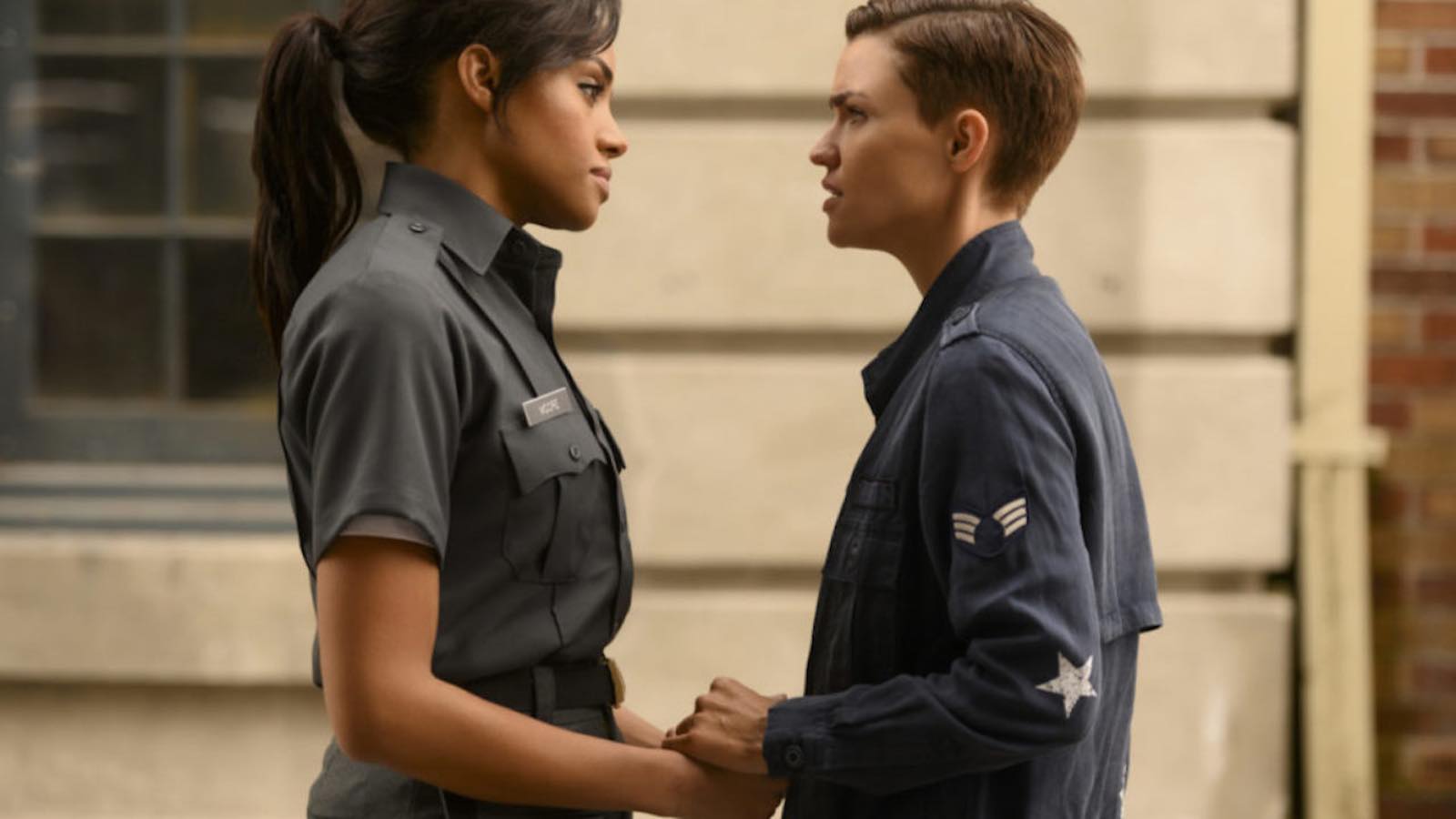
Film Daily’s top lesbian TV relationships of the 2010s
The media’s portrayal of lesbianism is often confined to the male gaze of television’s screenwriters, however, in the last decade and with the influx of LGBTQ+ representation, we’re finally seeing more dynamic and diverse portrayals of feminine sexuality.
Specifically, we’re talking about shows that stray from exploitative and unjustified plot devices, as well as common tropes associated with queerness in the media. We’ve traveled a long distance since Ross’s abhorrence toward Carol and Susan’s relationship in Friends, that’s for sure (and we’re ever so thankful).
The end of the 2010s is coming to a close, but before we bid adieu, we wanted to compile a list of the decade’s best, and most refreshingly organic, representations of lesbianism in television.

Lena Waithe in Master of None
In September of 2017, Lena Waithe became the first African American woman to take home an Emmy award for comedic writing for her work on Master of None’s “Thanksgiving”, an episode from the second season of the series.
Praised for its empathy and attention to detail, the episode follows Waithe’s character Denise and Aziz Ansari’s character Dev over a decade of Thanksgiving dinners with Denise’s mother (Angela Bassett). The holiday is used to mark major milestones in a relationship strained by Denise’s identification as gay and her mother’s regressive attitudes.
Waithe’s performance in the episode inspires a generation of modern queer romance — something we don’t get nearly enough of — especially told from the perspective of characters of color.

Ilana Glazer in Broad City
Having propelled queer representation and epic female friendship into normalcy through its five-season run on Comedy Central, Broad City encapsulates everything self-indulgent, hilarious, and undeniably extraordinary about modern sexuality.
Ilana’s (Ilana Glazer) acknowledgment of bisexuality as an identity feels like a fluid depiction of realistic romance. Ilana and Abbi (Abbi Jacobson) are, of course, wildly goofy in the name of comedy, but no one on Broad City really ascribes a label to themselves or anyone else, leaving sexuality ambiguous and waiting to be explored.

Ruby Rose in Batwoman
The CW’s Batwoman series (created by Vampire Diaries producer Caroline Dries) is doing DC Comics a favor by casting Ruby Rose as the titular character and Gotham’s queer babe hero. Based on Batman’s crime-fighting cousin, Kate Kane, who’s notably a lesbian, the series is a step forward for LGBTQ+ superheroes.

Hailee Steinfeld in Dickinson
In the new Apple TV+ series that loosely depicts the life of Emily Dickinson, Hailee Steinfeld’s performance as the titular character is delicious and fun, and always radically relevant. Although still a period piece, Dickinson’s gaiety embraces a modern view of how Emily Dickinson may have acted had she been smashing the patriarchy in 2019.
Her relationship with and love for Sue Gilbert, and more specifically the letters she wrote to her throughout her lifetime, are given an air of exuberance in this anachronistic retelling.
Make sure to check out our article here for more queer tidbits about the series!

Issa Rae and Wanda Sykes in BoJack Horseman
S5E7 “INT. SUB” of Bojack Horseman is anchored in place by the dynamic relationship between Wanda Sykes and Issa Rae playing a lesbian couple. Rae is Indira, Diane’s (and now BoJack’s) therapist, while Sykes is Mary Beth, who’s mediating a dispute between Todd and Princess Carolyn.
They provide an authentic and wonderfully orchestrated romance in the midst of the heavy-laden fog of alcoholism and untreated mental illness in the series, where every other relationship proves to be dysfunctional in a myriad of ways.

Alexis Bledel in The Handmaid’s Tale
Played beautifully by Alexis Bledel, Emily was a university lecturer married to a woman named Sylvia (Clea DuVall) before Gilead took over much of the U.S. in The Handmaid’s Tale.
After Emily is forced into servitude as a handmaid, we see her severely punished for various crimes. Upon her relationship with Martha being discovered, Emily is forced to watch the other woman hang before being genitally mutilated.
Margaret Atwood’s fervent dystopian novel (which the series is based on) is an emotional undertaking — queerness seen through the eyes of a character in a work of speculative fiction is a jarring reality check for our contemporary society.

Madelaine Petsch in Riverdale
Although Riverdale, in recent seasons, has left us muttering in confusion, it’s safe to say that Cheryl Blossom’s (Madelaine Petsch) blossoming sexuality leaves us starry-eyed.
The teen soap’s melodrama madness takes a step in the right direction with Cheryl and Toni’s tentative, yet delightfully bisexual romance. Just please, please don’t get us started on the sinister gay conversion plotline.

Anna Torv in Mindhunter
Aussie actress Anna Torv’s character, Dr. Wendy Carr, is as feverishly brilliant as she is headstrong in the Netflix series Mindhunter. Her lesbianism is touched upon in the first season, however, in season two, she begins a serious romance with Kay Manz (played by Lauren Glazier).
Keeping in mind that the series takes place in the mid-70s, Kay and Wendy’s relationship is an authentic account of sexual progress — greater exacerbated by the fact that it isn’t romanticized to the degree of becoming vapid.



